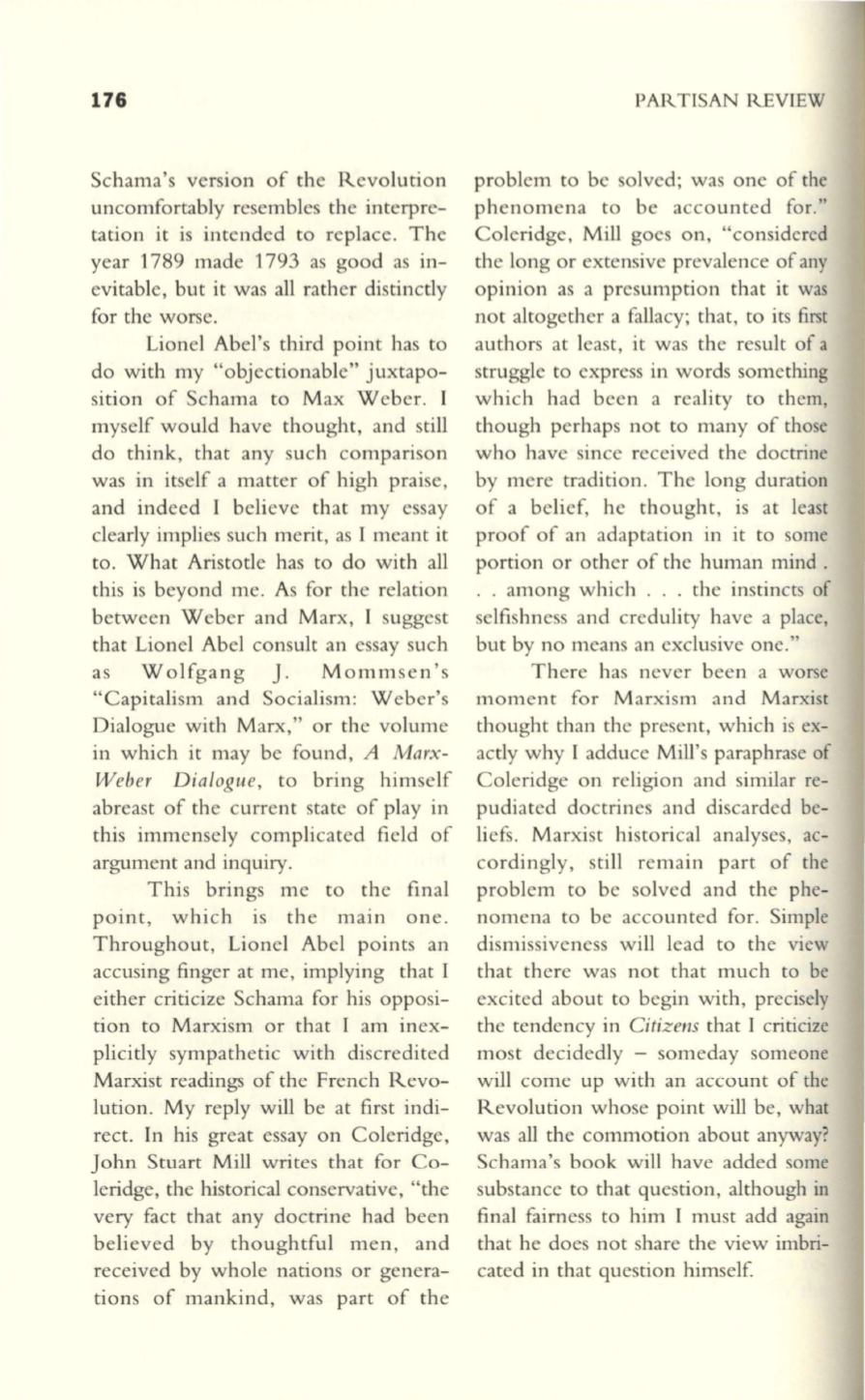
176
Schama's version of the Revolution
uncomfortably resembles the interpre–
tation it is intended to replace. The
year 1789 made 1793 as good as in–
evitable, but it was
all
rather distinctly
for the worse.
Lionel Abel's third point has to
do with my "objectionable" juxtapo–
sition of Schama to Max Weber. I
myself would have thought, and still
do think, that any such comparison
was in itself a matter of high praise,
and indeed I believe that my essay
clearly implies such merit, as I meant it
to. What Aristotle has to do with all
this is beyond me. As for the relation
between Weber and Marx, I suggest
that Lionel Abel consult an essay such
as
Wolfgang
J.
Mommsen's
"Capitalism and Socialism: Weber's
Dialogue with Marx," or the volume
in which it may be found,
A Marx–
Weber Dialogue,
to bring himself
abreast of the current state of play in
this immensely complicated field of
argument and inquiry.
This brings me to the final
point, which is the main one.
Throughout, Lionel Abel points an
accusing finger at me, implying that I
either criticize Schama for his opposi–
tion to Marxism or that I am inex–
plicitly sympathetic with discredited
Marxist readings of the French Revo–
lution. My reply will be at first indi–
rect.
In
his great essay on Coleridge,
John Stuart Mill writes that for Co–
leridge, the historical conservative, "the
very fact that any doctrine had been
believed by thoughtful men, and
received by whole nations or genera–
tions of mankind, was part of the
PARTISAN REVIEW
problem to be solved; was one of the
phenomena to be accounted for."
Coleridge, Mill goes on, "considered
the long or extensive prevalence of any
opinion as a presumption that it was
not altogether a f.illacy; that, to its first
authors at least, it was the result of a
struggle to express in words something
which had been a reality to them,
though perhaps not to many of those
who have since received the doctrine
by mere tradition. The long duration
of a belief, he thought, is at least
proof of an adaptation in it to some
portion or other of the human mind .
.. among which ... the instincts of
selfishness and credulity have a place,
but by no means an exclusive one."
There has never been a worse
moment for Marxism and Marxist
thought than the present, which is ex–
actly why I adduce Mill's paraphrase of
Coleridge on religion and similar re–
pudiated doctrines and discarded be–
liefs. Marxist historical analyses, ac–
cordingly, still remain part of the
problem to be solved and the phe–
nomena to be accounted for. Simple
dismissiveness will lead to the view
that there was not that much to be
excited about to begin with, precisely
the tendency in
Citiz ens
that I criticize
most decidedly - someday someone
will come up with an account of the
Revolution whose point will be, what
was all the commotion about anyway?
Schama's book will have added some
substance to that question, although in
final fairness to him I must add again
that he does not share the view imbri–
cated in that question himself.


